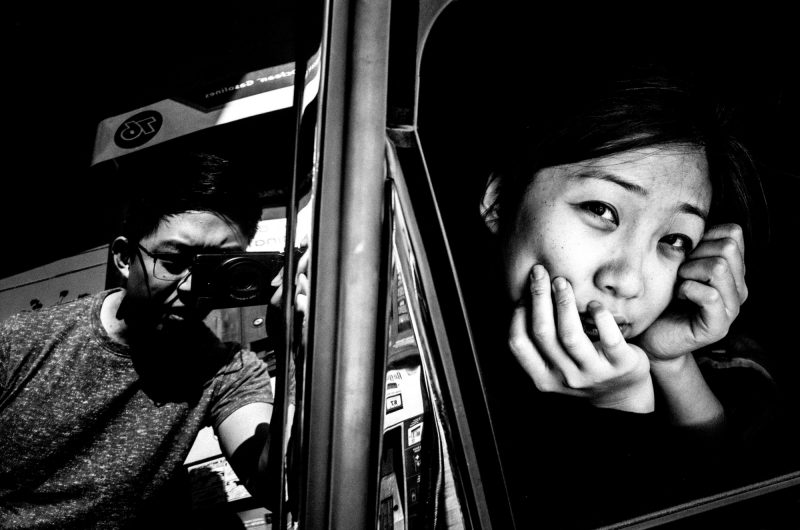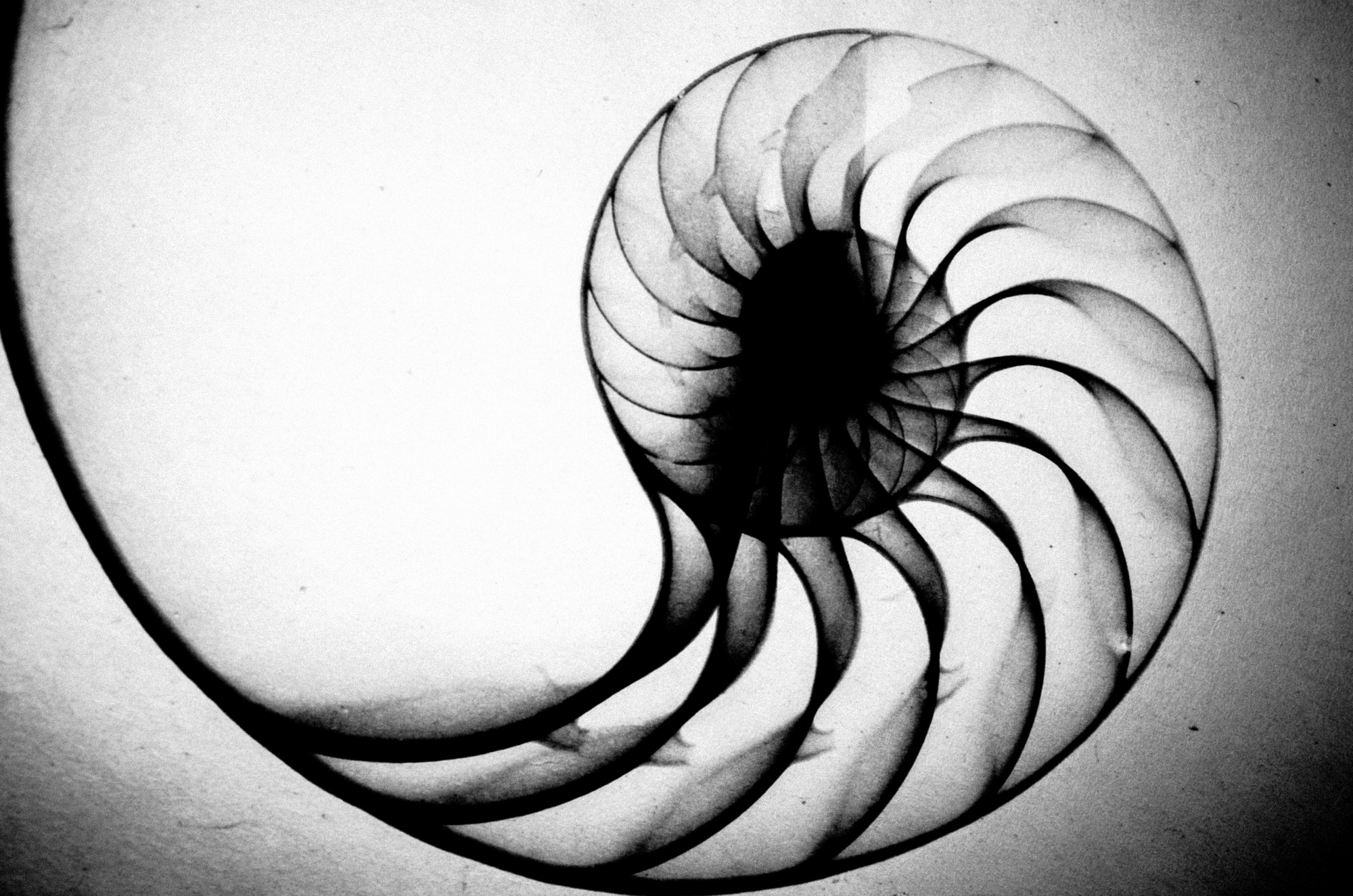
“Sharpness is a bourgeois (rich person) concept.” – Henri Cartier-Bresson
1. Softer lenses often have more soul
I remember when I started digital photography; the sharper the photo, the better.
In reality, a sharper photo is not a better photo. Often, a softer photograph gives you a more pleasing, soft, warm, and emotional aesthetic.
For example, I love the photos of Junku Nishimura, who shoots with a 35mm-film camera, with an old 50mm f/2.8 lens. The photos are softer; and evoke a more dreamy, nostalgic feel. His photos would not feel the same if he shot with a high-end digital camera, with a very sharp lens.
Also, the softer aesthetic of film looks aesthetically nicer, than overly sharp digital photos. This is why I see a lot of digital photographers flocking to film.
Often digital photos feel too perfect. Too sharp. Too clinical, too much like a surgeon.
Rather, film photos feel imperfect — which feel more nostalgic, and reminiscent of our childhoods.
I know that I prefer the nostalgic film photos that my mom shot of me as a kid; than any modern super-sharp photo I get today on my smartphone.
2. Art doesn’t care about sharpness

A lot of us photographers who get started in photography, are gadget-nerds or geeks. I myself have always been obsessed with technology. Photography was a perfect marriage between my interest in technology and art.
So of course, we are going to get fascinated with the technology (gear) behind photography.
First of all, I think the biggest misguidance from the internet is ‘sharpness tests.’ The problem is that a lot of us nerdy photographers come from sciences, engineering, or computer-programming. We think we can quantify the ‘quality’ or the ‘goodness’ of a photograph by the technical settings– the sharpness or resolution of an image.
3. Is painting ‘sharp’?
Good art is often un-sharp.
Consider the impressionists. They didn’t seek to make picture-perfect images of reality. Rather, they used dreamy and imperfect brush-strokes to evoke a mood; to evoke a feeling.
They realized that the importance of a picture or an image wasn’t whether it reflected reality or not. The more important thing: whether it reflected their personal mood, or view of the world.
4. Blurry photos often have more emotion

Also, out-of-focus, and blurry photos often have more emotion and mood. We feel more movement in a blurry photograph, rather than a perfectly tack-sharp image.
So often, blurry is good. It just depends on what kind of emotion you’re trying to evoke in an image.
5. Nobody can really tell a difference on the sharpness of your lenses on a screen
I’ve shot with all different cameras over the years. Canon Powershot SD 600, Canon Rebel XT (350D), Canon 5D (original), Leica M9, Ricoh GR II, film Leica, etc. Also, I’ve shot with expensive Leica Summicron f/2 ASPH lens ($3000 USD) and the integrated Ricoh GR II (28mm equivalent) lens.
I cannot tell a difference between any of my photos, shot on what camera, with what lens.
Only a nerd would look at all their photos at 100% resolution and ‘pixel peep.’ Or even worse– can you imagine someone going to a photographer’s exhibition, and commenting on how sharp (or unsharp) their photos are?
6. Are you shooting brick walls?
Please please please, avoid these websites where people do sharpness tests on brick walls. Do you plan on photographing brick walls for your entire life; or to photograph the soul of your subjects?
7. Is your viewer going to see your photo on a smartphone?
If you are printing your photos super-large; having sharper photos might be better.
But in reality, if you’re just uploading your photos to social media, or Instagram– 99% of people are going to see your photos from a 5-inch smartphone. You can’t even tell how sharp a photo is.
8. Buy books, not gear
Instead of dropping tons of money on lenses, use that money on inspirational photo books, traveling, attending workshops, or on something educational.
Instead of spending $500 on that new lens, maybe use that money to attend a weekend workshop. Or use the money to travel locally. Or to buy 10 good $50 photo books.
Instead of spending $1000 on that new lens, use that money to go on an international trip somewhere. Or buy (even more) photo books.
For me, education and books are always the best bang-for-the-buck. The experiences you have, and the education you learn will always stay with you.
A lens is just a lens, and will not improve your photography.
So when in doubt, buy books, not gear.
9. Buy a camera with a non-interchangeable lens

I am a huge fan of cameras with non-interchangeable lenses (like the Ricoh GR II, the Fujifilm X100T, or the Fujifilm x70). These non-interchangeable lenses are generally very compact, thin, light, and very sharp. And not only that, you don’t get stressed out about what lens to use (or not to use). You only have one lens, and you’re stuck with it. That is a ‘creative constraint‘ which forces you to be more creative.
Some related articles:
- Why I Love Cameras with Non-Interchangeable Lenses
- 10 Reasons Why I Shoot With One Camera and One Lens
10. Use whatever camera you have
To conclude; just use whatever camera you have. If your camera or lens is very soft, or not sharp– use it to your advantage.
I generally find monochrome photos to be more aesthetically-pleasing than soft color photos. But then again, photographers like Todd Hido have used soft color photos and made them beautiful.
Avoid gear review sites, sharpness tests, and all those nerdy places. Be satisfied with the gear you (already have), and remember what photography is all about: making meaning in your life; not making photos.
Always,
Eric
How to Conquer GAS >
GAS: (Gear Acquisition Syndrome): wanting to buy new cameras, because you feel like your photos aren’t good enough, because your camera isn’t good enough:
- How to Conquer GAS
- How to Stop Pixel-Peeping
- Why I Shoot With One Camera and One Lens
- 30 Tips to Conquer G.A.S. (Gear Acquisition Syndrome)
- Gear Allergy Syndrome
- Disregard Differences, Notice Similarities
- More Megapixels, More Problems
- Sensor Envy
- If Your Camera Isn’t Good Enough, Your Camera isn’t Expensive Enough
- How to Be Grateful For What You Have
- Having No Choices is the Ultimate Freedom
- Technology Won’t Fix Your Problems
- Why is Image Quality Important?
- Why Sharpness is Overrated in Street Photography

